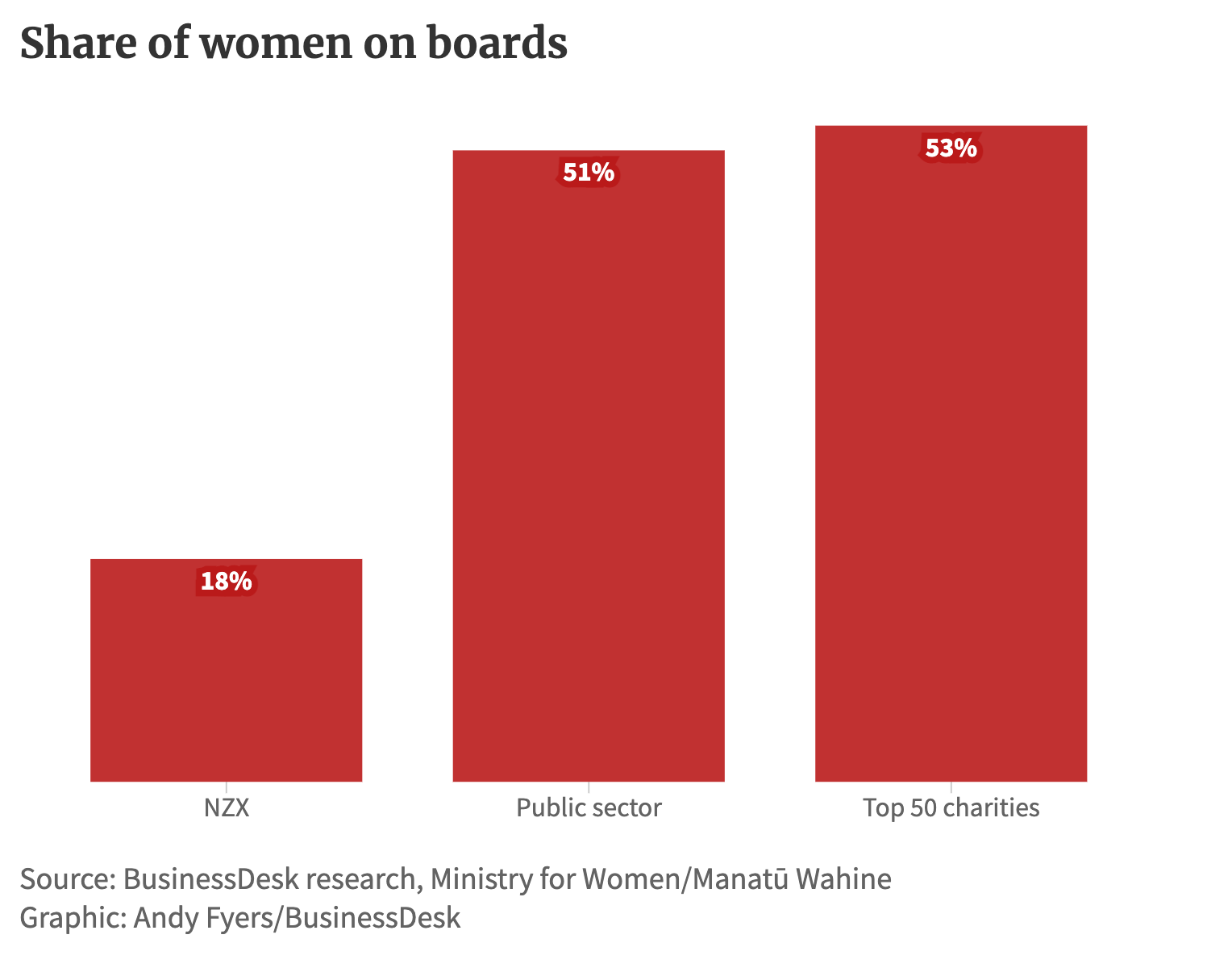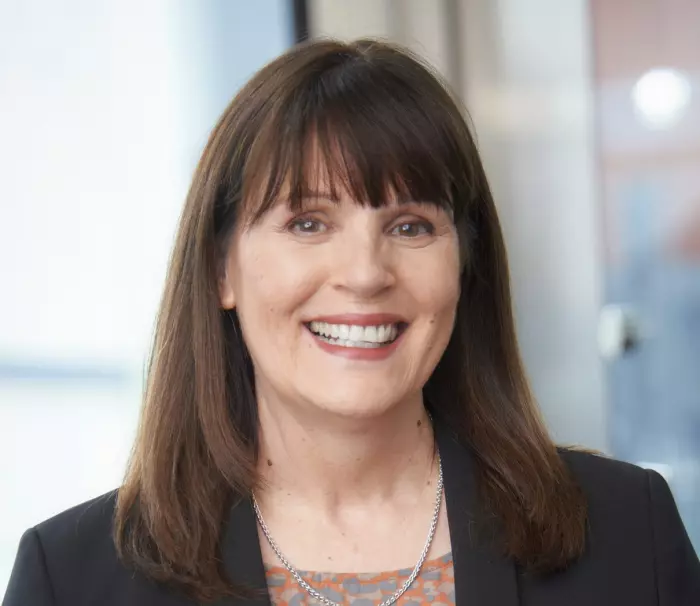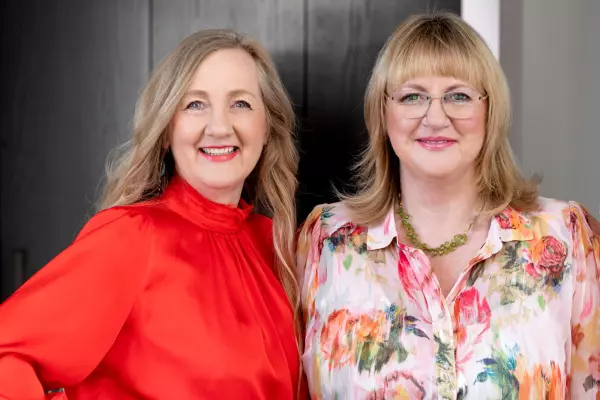Women take up the majority of board roles in our top charities, taking out 53% of trustee and director spots at our top 50 charities.
That’s according to a BusinessDesk analysis of the first names of people in the biggest 50 charities, by gross income.
Of the 153 charity directors or trustees, 70 had names normally associated with males, 83 had names normally associated with females, and four were unclear.
The analysis was compiled from our updated People Explorer launched earlier this week.
In contrast, our 2021 analysis showed women made up 18% of New Zealand Stock Exchange (NZX) boards, while Ministry for Women data showed 50.9% of public sector board roles are taken up by females.

Women on boards advocate Julie Hardaker said women often see charity boards as a starting point for a board career, and then find they enjoy it and want to stay on boards.
She said charities often offer better time commitments and more flexibility than corporate boards.
Hardaker, who is also chair of Governance NZ, there were many reasons why women weren’t making it onto corporate boards after working on charities.
“The reasons for this are many and varied, there could be perspectives that not-for-profits don’t have the skills required to be on those boards. That I would not agree with, but it's challenging.”
Professional director Victoria Carter said, without a doubt, women definitely cut their teeth in charitable roles more than men do.
Carter, who is on the boards of Ngāti Awa Group Holdings, Auckland Eye and Waka Kotahi, said one of her earlier directorships was as president of the Auckland Kindergarten Association.
“That was close to a $60 million business, with numbers of employees and sites all across Auckland.”
“The irony is that with both charities and corporates, the standards of good governance apply,” she added.
The former Auckland city councillor said it was sad that the women on boards debate was still happening in 2022.
“Imagine if the NZ Shareholders’ Association and the KiwiSaver providers declared boards must have two women?” she said.
A 2020 study by researchers at the University of Otago and US-based Purdue University said more women on a company’s board produces fairer gender distribution in the rest of the company.
However, it found females need to have two board spots, or about 20% of board membership, to be effective.
BusinessDesk’s study from 2021 showed of 112 companies on the NZX, 29 companies, or 26%, had two or more women on their board.














